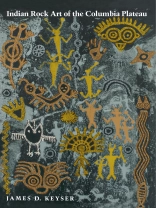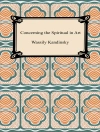From the river valleys of interior British Columbia south to the hills of northern Oregon and east to the continental divide in western Montana, hundreds of cliffs and boulders display carved and painted designs created by ancient artists who inhabited this area, the Columbia Plateau, as long as seven thousand years ago.
Expressing a vital social and spiritual dimension in the lives of these hunter-gathers, rock art captivates us with its evocative power and mystery. At once an irreplaceable yet fragile cultural resource, it documents Native histories, customs, and visions through thousands of years.
This valuable reference and guidebook addresses basic questions of what petroglyphs and pictographs are, how they were produced, and how archaeologists classify and date them. James Keyser identifies five regions on the Columbia Plateau, each with its own variant of the rock art style identifiable as belonging exclusively to the region. He describes for each region the setting and scope of the rock art along with its design characteristics and possible meaning. Through line drawings, photographs, and detailed maps he provides a guide to the sites where rock art can be viewed.
In western Montana, rock art motifs express the ritualistic seeking of a spirit helper from the natural world. In interior British Columbia, rayed arcs above the heads of human figures demonstrate possession of a guardian spirit. Twin figures on the central Columbia Plateau reveal another belief–the special power of twins–and hunting scenes celebrate success of the chase. The grimacing evocative face of Tsagiglalal, in lower Columbia pictographs, testifies to the Plateau Indians’ “death cult” response to the European diseases that decimated their villages between 1700 and 1840. On the southeastern Plateau, images of horse-back riders mark the adoption, after 1700 of the equestrian and cultural habits of the northwestern Great Plains Indians.
Despite geographic differences in emphasis, similarities in design and technique link the drawings of all five regions. Human figures, animals depicting numerous species on the Plateau, geometric motifs, mysterious beings, and tally marks, whether painted or carved, appear throughout the Columbia Plateau.
Inhoudsopgave
Preface
Introduction
The Columbia Plateau and Its Artists
Western Montana: The Eastern Columbia Plateau
–Images of Forgotten Dreams
British Columbia
–Rayed Arcs: A Distinctive Motif
The Central Columbia Plateau
–Twins: The Duality of Life
–The Magic of the Hunt
The Lower Columbia
–She Who Watches
The Southeastern Columbia Plateau: Hells Canyon and Central Idaho
–The Horse Brings a New Way of Life
Rock Art Sites Developed for the Public
Conclusions
–Of Irish Monks and Ancient Astronauts
Glossary
Bibliography
Index
Over de auteur
James D. Keyser conducts research for the Indigenous Cultures Preservation Society. He has taught anthropology at SUNY Buffalo and the University of Tulsa, and served as Northwest Regional Archaeologist for the USDA Forest Service. He is the author of Clan Crests and Shamans’ Masks: Petroglyphs in Southeast Alaska (Indigenous Cultures Preservation society, 2012), Rock Art of the Oregon Country (Oregon Archaeological Society Press, 2010), Indian Rock Art of the Columbia Plateau (University of Washington Press, 1992); and coauthor of Plains Indian Rock Art (University of Washington Press, 2001).












